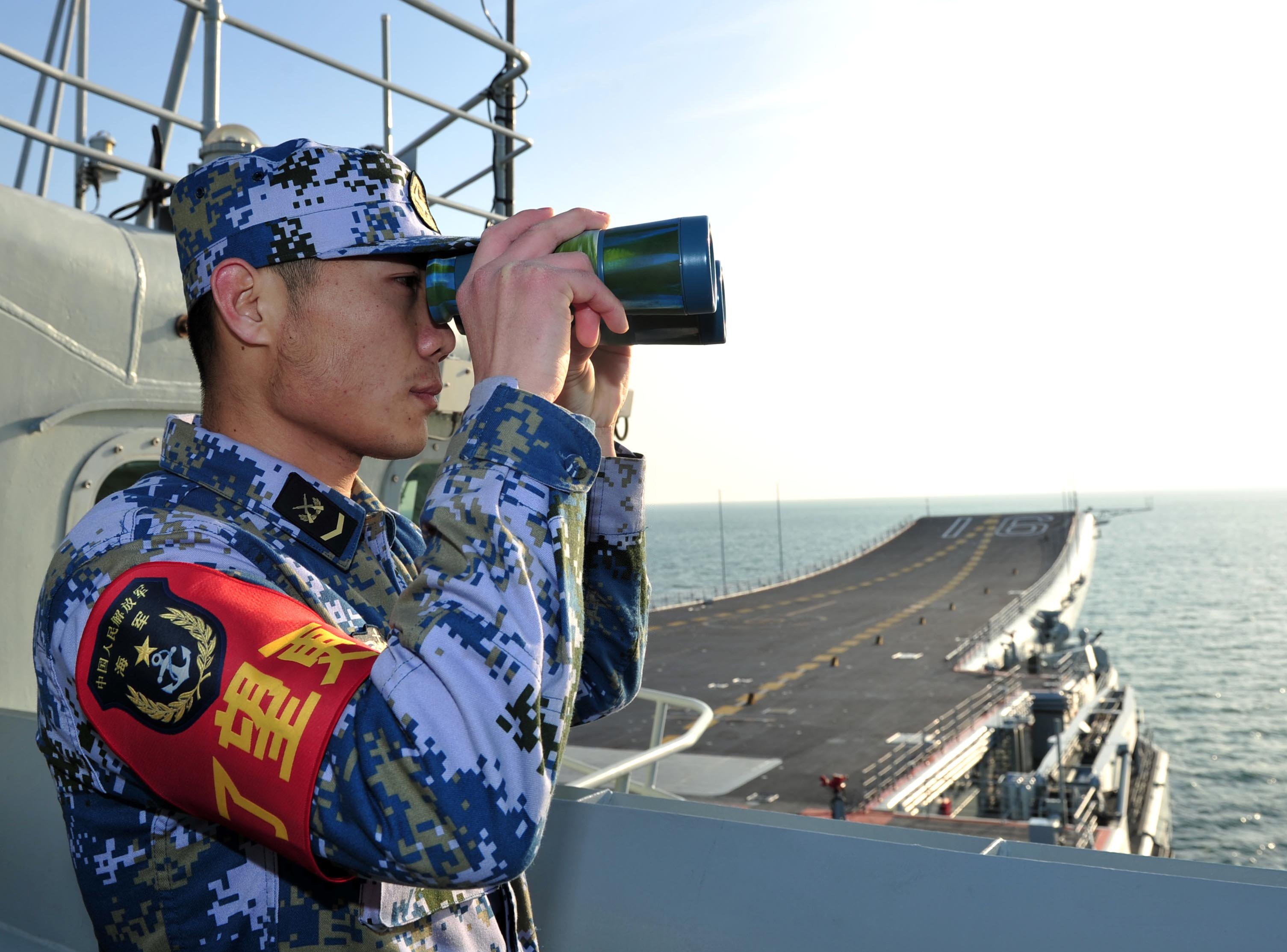
While revoking China’s invitation from the Rim of the Pacific 2018 maritime exercises was a symbolic move, it sent a signal that the United States is willing to confront Beijing and maintain American leadership in the Western Pacific, the top Pentagon official for the region said Tuesday.
Taking a stand against China’s bullying and harassment of its neighbors and its territorial claims “finds the United States and many other countries side-by-side,” Randall Schriver, assistant secretary for Asia-Pacific affairs, said at an American Enterprise Institute forum on Southeast Asia said on Tuesday.
Chinese maritime forces conduct “more shadowing, more harassment,” he said. In addition to the China Coast Guard and People’s Liberation Army Navy Beijing also employs its maritime militia to intimidate crews of fishing vessels operating in disputed waters.
Schriver called the continued militarization of the South China Sea the most troubling aspect of Beijing’s belligerency in asserting regional dominance.
“Militarization is problematic” as China continues turning reefs into artificial islands with airfields, naval stations and installs anti-air and anti-ship missile systems to put teeth into its dubious sovereignty claims, he said.
On the maritime side, responses to what Beijing threats and actions include continuing freedom of operations missions and “perhaps more nations participating in presence” missions. In both cases, Beijing knows other countries are watching what they are doing at sea or with those reefs.
Earlier he mentioned continued smaller exercises than RIMPAC 2018 — Cobra Gold for example or a second ASEAN [Association of Southeast Asian Nations] second maritime event — as another important in countering the Chinese. They show American commitment and interest in building their security capacity, as it did in the Philippines in counterterrorism operations. Schriver also cited the value of USS Carl Vinson‘s carrier strike group making a port call at DaNang, Vietnam and the sale of a Coast Guard cutter to Hanoi for patrol duty as shows of American support to a neighbor with testy relations with Beijing’s.
There also has to be cost imposition for this kind of repeated behavior by the Chinese, he said, and the best way to do that “is shine a light on these activities. It is a concern to everyone in the region” — not just the United States.
Chinese meddling extends beyond territorial claims and military assertiveness, he added.
Schriver said that Australia and Malaysia have publicly fingered China for trying to corrupt their politics through influence buying and large tainted business deals, through its One Belt/One Road initiative.
“China has a strategy” that looks to the long-term in rolling out its plans and goals. It’s up to the United States and its allies and partners, like Japan, Australia and New Zealand is to quickly “blunt the erosion of sovereignty” through developmental aid and investment in Southeast Asian nations, as well as building their security capacity.
“We’re not going to do what China does” in either bullying or investing in such a way that the project eventually defaults to Washington’s control, as happened with a port in Sri Lanka. Citing the record of USAID in the region, “we want them to graduate” to run the project without American assistance and that “is in stark contrast to how China approaches” development projects — from ports, highways, airports and railroads.
Schriver said working with the State Department on the investment and diplomatic side the Pentagon through the Maritime Security Initiative is helping a number of nations improve their own awareness as to what is happening in their waters — from illegal fishing to mineral extraction. A combination of better equipment — namely radar, security training, attention to organization and a new emphasis on information sharing with neighbors — is helping in this regard.
When asked about Taiwan, he answered the United States needed “to think creatively” about its non-diplomatic level relations with Taipei. “It is an important contributor of the free and open concept” of governance the United States is trying to promote regionally.
In his opening remarks, he criticized Myanmar [Burma] for the repression of its Muslim minority population and its arrest of journalists trying to cover what is happening there. Schriver called the recent voting in Cambodia “a sham election [where] the military was used to threaten the people” on how to vote.
The biggest challenge is to stop “the erosion of individual state sovereignty” in the wake of Chinese diplomatic, economic and military pressure.





